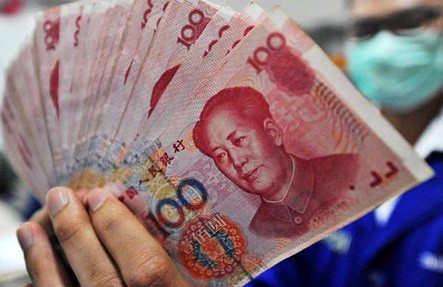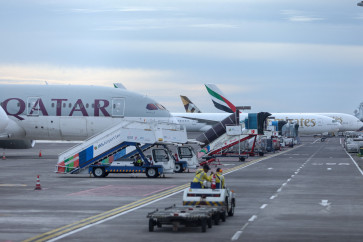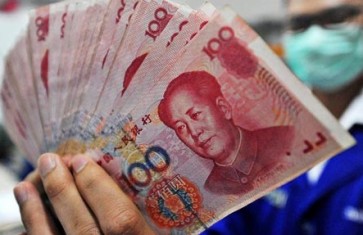Popular Reads
Top Results
Can't find what you're looking for?
View all search resultsPopular Reads
Top Results
Can't find what you're looking for?
View all search resultsHow yuan’s depreciation affects the world, Indonesia
The US-China trade war will continue and enter the next episode, namely a currency war. The change will have a greater impact on and hurt not only the US and Chinese economies but also the global economy. Some experts predict that if the currency war continues to take place, it may lead to three scenarios.
Change text size
Gift Premium Articles
to Anyone
 The public reacted to the yuan’s depreciation by selling off global shares. In an offshore market, $1 was traded at 7.0949 yuan, and after changing hands in an onshore market, $1 was traded at 7.0507 yuan. In an onshore market, the yuan was allowed to move in a band that was able to fluctuate 2 percent from the reference rate. (kompas.com/Hendra A.Setyawan)
The public reacted to the yuan’s depreciation by selling off global shares. In an offshore market, $1 was traded at 7.0949 yuan, and after changing hands in an onshore market, $1 was traded at 7.0507 yuan. In an onshore market, the yuan was allowed to move in a band that was able to fluctuate 2 percent from the reference rate. (kompas.com/Hendra A.Setyawan)
T
he world’s monetary markets are undergoing turmoil, and the United States-China trade war is escalating. The situation was triggered by the latest People’s Bank of China (PBOC) policy, which depreciated the yuan on Aug. 5. The currency had plunged to its lowest point. According to The Wall Street Journal, one US dollar amounted to over 7.10 yuan.
The move was reportedly made in response to US President Donald Trump’s threat that Washington would impose a 10 percent import tariff on Chinese products, amounting to US$300 billion, starting on Sept. 1.
The public reacted to the yuan’s depreciation by selling off global shares. In an offshore market, $1 was traded at 7.0949 yuan, and after changing hands in an onshore market, $1 was traded at 7.0507 yuan. In an onshore market, the yuan was allowed to move in a band that was able to fluctuate 2 percent from the reference rate.
There was some debate between economists and traders over whether the yuan’s weakening was deliberately made by Beijing as a weapon in the trade war. Wall Street brokers fled their stocks and other assets they thought would be badly impacted if the US-Chinese trade war continued to escalate. That Wall Street phenomenon then spread to other global exchange markets until Monday afternoon.
Indexes at the Dow Jones Industrial fell 900 points or 3.4 percent, the S&P 500 fell by 3.5 percent and the NASDAQ tech composite decreased by 4 percent.
Most analysts think that the US and China will have to make a trade deal. China has employed its currency as a weapon, and it is predicted that the weapon will trigger another currency war with the deliberate weakening of the yuan to strengthen the competitiveness of its exports.
Chinese officials have not denied that interpretation. In fact, the PBOC officially stated that the yuan’s depreciation was due to the impact of unilateralists’ reactions and a balancing measure of protectionist policies in trade.

















